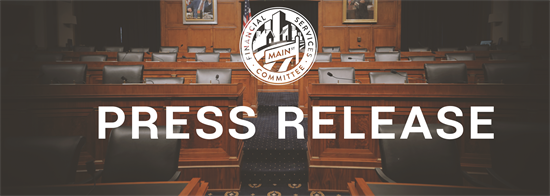House Approves Bill to Help Small Businesses Grow Economy
Washington,
September 8, 2016
WASHINGTON -- The House on Thursday passed the Accelerating Access to Capital Act, a package of three bills that will help small businesses access the capital they need to grow the economy and create jobs. The U.S. economy grew an average of 3.7 percent during other recoveries since 1960, but growth has averaged a meager 2.1 percent in the current recovery. In the second quarter of 2016, growth was even worse. U.S. gross domestic product rose at just a 1.1 percent annualized rate. “We’re here because we care about the plight of the working poor. We care about the fact that middle income families are falling behind. The other side of the aisle has had eight years of their economics and we don’t have a healthy economy. So we are growing the economy through this bill and that’s why it is so vitally important,” said Financial Services Committee Chairman Jeb Hensarling (R-TX) during debate. “We must have capital formation if we’re going to have a healthy economy for working families who are falling behind after eight years of Obamanomics.” According to a report released this week by the National Small Business Association, 41 percent of small business owners said lack of capital is hindering their ability to grow their business or expand operations, and 20 percent said they had to reduce the number of employees as a result of tight credit. The three pro-growth bills included in the package passed by the House today are: H.R. 2357, the Accelerating Access to Capital Act sponsored by Rep. Ann Wagner (R-MO) The bill simplifies the Securities and Exchange Commission’s (SEC) registration regime for smaller companies, lowering compliance costs associated with redundant paperwork so companies can direct more resources to growing their businesses. The bill passed the Financial Services Committee by a vote of 33-24 on May 20, 2015. H.R. 4850, the Micro Offering Safe Harbor Act sponsored by Rep. Tom Emmer (R-MN) The bill amends the Securities Act of 1933 to allow for small businesses to utilize “micro offerings” to raise capital without overly burdensome registration requirements. This change will allow small business to operate with confidence that they are not in violation of the law when doing a micro offering if the following requirements are met:
The bill passed the Financial Services Committee by a vote of 34-25 on June 16. H.R. 4852, the Private Placement Improvement Act sponsored by Rep. Scott Garrett (R-NJ) The bill will increase the use of private placement offerings for companies to raise capital that will spur economic growth. Title II of the JOBS Act removed the ban on general solicitation or advertising for SEC Regulation D offerings. Unfortunately, the SEC proposed rules that will have a chilling effect on the positive changes made by the JOBS Act. H.R. 4852 directs the SEC to revise Regulation D to ensure that small businesses do not face complicated and unnecessary regulatory burdens when attempting to raise capital through Regulation D offerings. The bill passed the Financial Services Committee by a vote of 33-26 on June 16. None of the bills change or lessen the SEC’s authority or ability to prosecute fraud and abuse. All of the investor protection provisions in federal securities laws remain unchanged with these bills.
#### |


